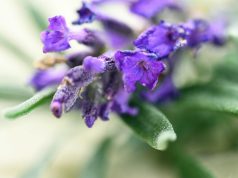Catching a common cold can be an inconvenient and uncomfortable experience, leaving you with symptoms like a runny nose, sore throat, and fatigue. While over-the-counter medications are often the go-to solution, many people are turning to the natural healing properties of herbal remedies for relief. If you’re looking to ease your symptoms with a gentler, more holistic approach, you’re in the right place. This article will guide you through the effective use of herbal remedies to alleviate the discomforts of a common cold. With empathy and understanding, we’ll explore time-tested herbs that can support your immune system and provide comfort, helping you feel better naturally. Whether you’re new to herbal medicine or seeking to expand your knowledge, we’ll offer practical advice to help you navigate this path to wellness.
Understanding the Benefits of Herbal Remedies for Cold Relief
Herbal remedies have been used for centuries as a natural approach to alleviate the symptoms of common colds. Herbs offer a gentle yet effective way to boost your immune system and ease discomfort. Here are some benefits you might experience when using herbal remedies:
- Immune Support: Herbs like echinacea and elderberry are known for their immune-boosting properties, helping your body fend off cold viruses more effectively.
- Symptom Relief: Ginger and peppermint can help soothe sore throats and reduce congestion, making breathing easier.
- Reduced Inflammation: Turmeric and garlic have anti-inflammatory properties that can help reduce swelling and irritation in the throat and nasal passages.
| Herb | Benefit |
|---|---|
| Echinacea | Boosts immunity |
| Ginger | Soothes sore throat |
| Peppermint | Reduces congestion |
| Turmeric | Reduces inflammation |
Incorporating these herbal remedies into your routine can offer a natural alternative to over-the-counter cold medications. It’s important to consult with a healthcare professional, especially if you are taking other medications or have underlying health conditions, to ensure that herbal remedies are safe for you.

Identifying Effective Herbs for Treating Cold Symptoms
When it comes to battling the bothersome symptoms of the common cold, turning to nature’s medicine cabinet can be surprisingly effective. Several herbs have been traditionally used to soothe coughs, ease sore throats, and reduce congestion. Here’s a guide to some of the most beneficial herbs and how they can help alleviate your cold symptoms:
- Echinacea: Known for its immune-boosting properties, Echinacea may help reduce the duration and severity of cold symptoms. It’s often taken as a tea or in capsule form.
- Ginger: This warming herb is excellent for soothing a sore throat and reducing inflammation. Fresh ginger tea with a touch of honey can be both comforting and effective.
- Peppermint: With its menthol content, peppermint is great for clearing nasal congestion. Inhaling peppermint steam or drinking peppermint tea can offer relief.
- Thyme: This herb is rich in compounds that act as natural cough suppressants. A thyme tea can help calm persistent coughing.
To help you select the right herb for your symptoms, refer to the table below:
| Symptom | Recommended Herb | Method of Use |
|---|---|---|
| Runny Nose | Peppermint | Tea, Steam Inhalation |
| Cough | Thyme | Tea |
| Sore Throat | Ginger | Tea |
| Fatigue | Echinacea | Capsules, Tea |

How to Safely Prepare and Use Herbal Remedies at Home
When dealing with a common cold, herbal remedies can offer soothing relief. To safely prepare these remedies, always start by selecting high-quality herbs from reputable sources. Cleanliness is crucial, so ensure all your utensils and containers are thoroughly washed. It’s advisable to research each herb’s properties to avoid any potential interactions or side effects.
- Chamomile Tea: Known for its calming effects, chamomile can help reduce symptoms such as sore throat and congestion.
- Echinacea Tincture: This herb is believed to boost the immune system. Use it at the onset of a cold for best results.
- Ginger Infusion: With its anti-inflammatory properties, ginger can ease throat irritation and improve circulation.
| Herb | Preparation | Dosage |
|---|---|---|
| Chamomile | Steep 2 tsp in hot water for 10 mins | 1 cup, 3 times a day |
| Echinacea | Mix 15 drops of tincture in water | 2-3 times a day |
| Ginger | Boil 1 inch of ginger in water for 5 mins | 1 cup, twice a day |
Always listen to your body and discontinue use if any adverse reactions occur. Consult with a healthcare professional if you are pregnant, nursing, or taking any medications, as herbs can sometimes interfere with pharmaceutical treatments. Remember, while herbal remedies can be beneficial, they should complement, not replace, conventional medical care.

Integrating Herbal Remedies with Conventional Cold Treatments
For those looking to enhance their recovery journey from the common cold, combining herbal remedies with conventional treatments can offer a balanced approach. Echinacea, for instance, is renowned for its immune-boosting properties and can be taken alongside over-the-counter medications to help reduce the duration of symptoms. Similarly, ginger tea not only provides warmth and comfort but also acts as a natural anti-inflammatory, easing sore throats and reducing nasal congestion.
- Elderberry Syrup: Supports immune function and can be taken with traditional cold medicines.
- Garlic: Known for its antiviral properties, it can be added to soups or taken in capsule form to complement decongestants.
- Honey: Offers soothing relief for coughs and sore throats, and pairs well with expectorants.
When integrating these natural remedies, it is crucial to consider their interactions with any medications you may be taking. Here’s a quick reference to some common herbal and conventional treatments:
| Herbal Remedy | Conventional Treatment | Interaction Notes |
|---|---|---|
| Echinacea | Antihistamines | No significant interactions |
| Ginger | Cough Syrup | Enhances soothing effects |
| Garlic | Decongestants | May enhance immune response |
Always consult with a healthcare professional before starting any new treatment regimen to ensure the safety and efficacy of your chosen combination.








































